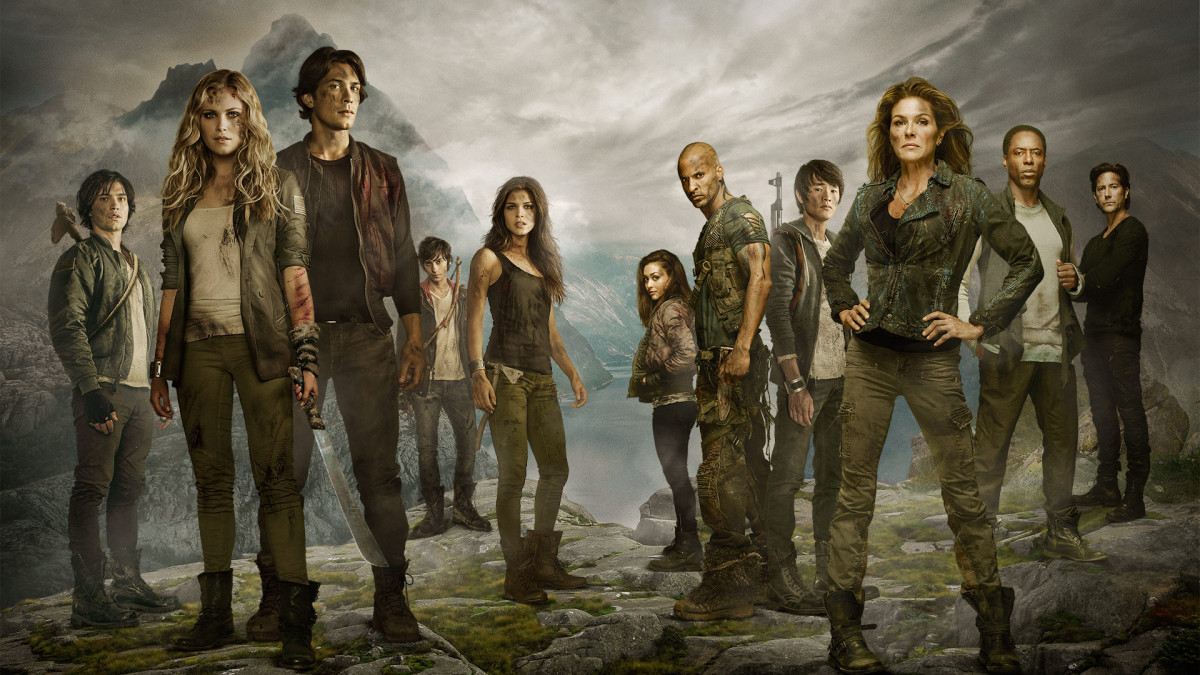The 100
Yet another TV show about a post-apocalyptic world? Well… yay! (Honestly!) I’m a big fan of this genre, so big that I actually wrote my bachelor’s thesis about it. And quite a few blog posts / reviews ([1] [2] [3]). So here’s another one of those review blog posts: this one is about The 100, a TV show that began airing on The CW (US) in 2014.
The 100 begins loaded with teen drama (or whatever you want to call it), as the premise of the show is that 100 juvenile delinquents are banished to a post-apocalyptic earth which is believed to be highly radioactive and uninhabitable. Send from where, you ask? Well, from the Ark, of course! The Ark is a space station that has been orbiting earth for about a hundred years or so, ever since all life on earth was annihilated. But resources on the Ark are dwindling fast, so the people who live there try to find methods of saving even a resources like oxygen. So why not send a shuttle to the ground containing 100 unwanted criminals who would be executed anyway once they turn 18?
That’s exactly what the governing council of the Ark did, expecting those 100 to die anyway from radiation poisoning. But that was probably not the only reason – they were curious to find out if Earth was inhabitable again… and surprise… the 100 seem to be still alive…

So once these youngsters adapt to their new environment, thankfully the teen drama mostly ceases and is replaced with excellent, quite high-brow drama1. Over the course of two seasons, those insecure teenagers turn into ruthless leaders, fierce warriors and righteous diplomats (and most of them are women). The show is quite the opposite of what you’d expect when you only know the basic premise – it is actually one of the more progressive shows currently out there. And most importantly, it doesn’t keep the viewers in their comfort zone. Don’t grow too attached to a character, because on The 100, characters actually die for good. A lot.
As a linguist, The 100 is even more exciting for me, as it features its own new language, Trigedasleng. This is the language of the people on the ground, and it’s actually a language that is 100% based on English. It is a theory of what English could be like after a hundred years of language change. Oftentimes it’s also quite funny, as for example “shof op” means “be quiet”.
Whether you’re a linguist or not – if you like visions of a different future, or stories with really kick-ass women, or just really well-written television, you’re in for quiet a ride with The 100. I would definitely count it among great shows like Buffy, Doctor Who or Jericho.


Write a response